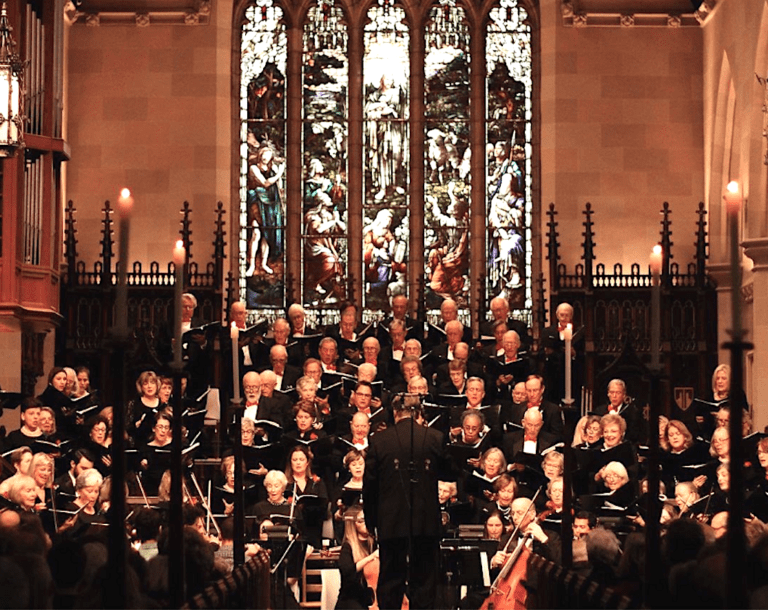
By Rev. Dr. Chuck Davis
The central week of the Christian faith is Holy Week. The Christian faith has no meaning apart from the crucifixion and resurrection of Jesus.
During this season people ask me, “Chuck, I get the historicity of the crucifixion, but resurrection—really?” We are comfortable with martyrs, but miracles stretch our ability to believe.
So why do I believe in a literal resurrection of Jesus of Nazareth from the dead?
I begin with the historical documents. The New Testament reports that Cephas (Peter), James (the brother of Jesus), all the 12 apostles, the Apostle Paul, and more than 500 others saw the risen Christ (I Corinthians 15:5-8). Those documents are more reliable and better preserved than any other ancient historical document in our hands today.
The objections to the historicity of the resurrection can be summarized into two basic arguments around these historical reports of Jesus appearing after his death:
1) The early followers were lying to cover up their error or make their situation safer; or
2) They were emotionally distraught and confused because of the shock of Jesus’ death, so they corporately imagined that he was still around: he was alive in their hearts!
Here are my thoughts on those objections.
1) If they were liars, they were not vry good liars. In each of the gospel accounts the first responders and witnesses to resurrection were women. When a person lies, they do so to gain advantage or make their story more credible. In the 1st Century, if you wanted to fool people so as to start a new religion, you would not base your case on the witness of women. The earliest followers would not have made this mistake at the outset if they were purposefully lying.
2) Second, in relation to the notion that lying would improve their situation, the announcement of resurrection actually made life more difficult for them. Immediately after the resurrection, the disciples of Jesus scattered and went into hiding. The passing of time did not make their situation any easier.
Ten of the eleven closest followers (the Apostles) of Jesus died as martyrs because of the lie. And consider how they died: three were beaten to death, three were crucified (one upside down), two died at the end of sword and spear, and one was burned to death. The only one who lived into old age was banished to an island. There was nothing gained in keeping the lie.
Now, someone might say that the peer pressure of the group was strong enough to keep them from caving in. That would be reasonable for the first three or four martyrs. When it got down to the final two or three who were still living, one of them would have said, “Okay the ruse is up; I renounce the resurrection; it was a lie; can I now go free?” In fact, if any of them had agreed to do this along the way, they would have been rewarded by religious and political officials for abandoning the truth.
The most unlikely liar in the group was the Apostle Paul. We have no record of him meeting the incarnate Christ before his death. He met the resurrected Christ in a vision after Christ had ascended into heaven. At that time, he was making a living, and a handsome one at that, in persecuting the people who believed in the Resurrected Christ. He traded social, cultural, and financial capital for a life of persecution and trouble. You don’t do that for a lie.
3) Finally, the way the earliest believers suffered and died totally annihilates the notion that the early believers were so distraught that they hallucinated and had emotionally created a sense that Jesus was still around. The first problem with this is that psychologists will tell you that people do not hallucinate in group. The second problem is that shock therapy has a way of breaking people out of emotional confusion—spears, swords, burning stakes have a way of revealing the truth.
Were they confused and distraught after the death of Jesus? Absolutely. Did they believe that resurrection was going to be the outcome when the saw the dead body of Jesus removed from the cross? Absolutely not. They were as surprised as we are today. Their surprise is evidenced in the fact that the first women witnesses went to what they discovered as an empty tomb with spices to anoint the dead body of Jesus. If they expected resurrection, they would have brought breakfast.
Conniving liars? Doesn’t add up. Confused? Yes. Hallucinating? Far from it. So what really happened?
“…he was raised on the third day and appeared….”
If you want to discover more, I recommend “The Case for the Resurrection of Jesus,” by Habermas and Licona.
“But Chuck, does resurrection really matter? Can’t I just believe in Jesus and not worry about resurrection?” My brother-in-law succumbed to cancer and died just a few months ago. Some of my friends, and family members of friends, died in the past months. And bottom line, I am going to die. Resurrection matters to me!
The Rev. Dr. Chuck Davis is senior pastor at Stanwich Congregational Church.




